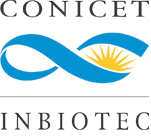Cyanobacterial Lifestyle and its Applications in Biotechnology, Chapter 5, 2021
Abstract
Sustainable production of N-fertilizers is essential to hold the increasing demand for food expected over the next decades. While reduced access to N-fertilizers causes food shortages in some regions of the world, incorrect management in other areas causes detrimental effects on the environment. An increase in the current agricultural exploitation of biological N2-fixation promises a great benefit on both the economic and environmental aspects. To that end, a variety of novel strategies have been proposed and were actively investigated and improved over the last decade. One such strategy consists in the production of biomass of N2-fixing cyanobacteria and its application as a fertilizer and soil conditioner. Separating biological fertilizer production under optimized conditions for that sole purpose from soil fertilization and crop cultivation might bypass the probabilities of the microorganisms’ adaptation to the agronomic conditions and facilitate the management of the fertilizer. Last decade’s advances in different fields of science and technology might lead to mature technology for this strategy to contribute an alternative source of N-fertilizer for sustainable agriculture. This review will compile the main recent advances in (1) massive cultivation of cyanobacteria, including the use and recycling of nutrients in domestic or industrial wastewater; (2) biomass mineralization in the soil; (3) cyanobacterial production of accessory bioactive compounds for stimulating plant growth and/or improving soil characteristics; (4) empirical evidence for efficient plant fertilization and soil conditioning; (5) genetic engineering tools for the optimization of selected traits in cyanobacteria for their use as organic fertilizer; and (6) multi-institutional projects, as well as the main present and future challenges toward the industrial application of this technology.
Keywords:
Biological Nitrogen fixation, Blue-green algae fertilizer, Food security, Cyanobacterial massive culture, Wastewater treatment, Biomass mineralization, Drought, Soil conditioner, Cyanobacterial necromass, Green manure

